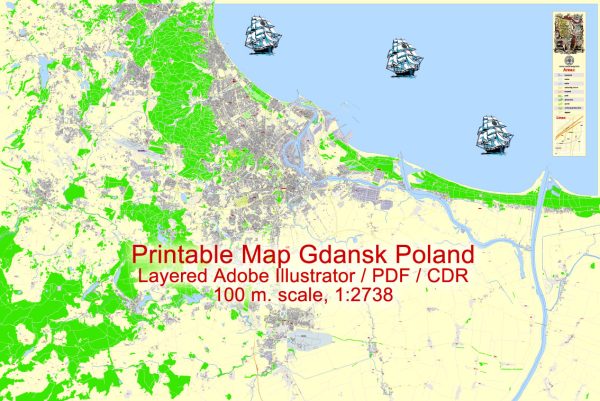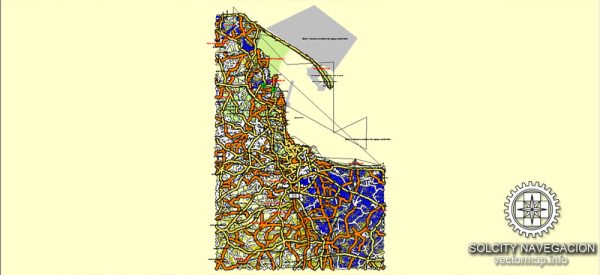Gdańsk, a city in northern Poland, has a rich maritime history and a thriving maritime industry, primarily centered around its strategic location on the Baltic Sea. The city’s maritime industry and transportation infrastructure play a significant role in the region’s economy and history.
1. Port of Gdańsk: The Port of Gdańsk is one of the largest and busiest ports on the Baltic Sea. It consists of several terminals, including the Deepwater Container Terminal (DCT Gdańsk), the largest container terminal in the Baltic Sea region, and the Gdańsk Oil Terminal. The port handles various types of cargo, including containers, bulk goods, and liquid fuels, making it a vital gateway for international trade in the region.
2. Shipbuilding: Gdańsk has a long and proud tradition of shipbuilding. The city is known for its shipyards, such as the historic Gdańsk Shipyard and Gdynia Shipyard, which have produced a wide range of vessels, including cargo ships, naval vessels, and even luxury yachts. The shipbuilding industry has been a significant contributor to the city’s economy and has played a role in shaping its history.
3. Maritime Services: Gdańsk offers a wide range of maritime services, including ship repair, maintenance, and other support services. Numerous companies in the region provide technical and logistical support to vessels passing through the Baltic Sea, contributing to the city’s maritime industry.
4. Transportation Infrastructure: Gdańsk is a critical transportation hub in the region, not only for maritime transportation but also for land-based transport. The city is well-connected by road, rail, and air, making it a gateway for goods moving to and from Poland and other parts of Europe. The Gdańsk Lech Wałęsa Airport serves as an essential point of access for air transportation.
5. Maritime Culture and History: Gdańsk has a rich maritime heritage, with several maritime museums and historical sites that showcase its seafaring traditions. The city is home to the Maritime Museum, which houses a diverse collection of maritime artifacts, including ship models, navigational instruments, and exhibits on the city’s maritime history.
6. Maritime Education: Gdańsk is home to several institutions that offer maritime education and training. The Gdynia Maritime University is one of the leading institutions in the field, providing education and research in maritime-related disciplines, including navigation, marine engineering, and maritime logistics.
In summary, Gdańsk, Poland, has a well-established maritime industry and transportation infrastructure, with a historic port, shipbuilding tradition, and a strong presence in maritime services. Its strategic location on the Baltic Sea and its comprehensive transportation connections make it a vital player in regional and international trade and shipping.



 Author: Kirill Shrayber, Ph.D. FRGS
Author: Kirill Shrayber, Ph.D. FRGS